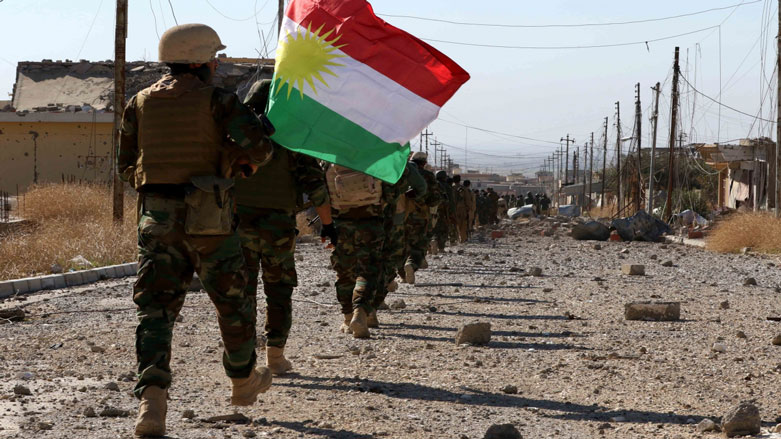Masrour Barzani: Mosul offensive has geographic limitations for Peshmerga advance

ERBIL, Kurdistan Region (Kurdistan24) – Peshmerga will participate in the military operation of retaking Mosul from the Islamic State (IS), but there are geographic limitations for their advance, said a senior Kurdish official on Wednesday.
The Chancellor of the Kurdistan Region Security Council (KRSC) Masrour Barzani noted they had reviewed the plan for the Mosul battle and Peshmerga would “definitely” participate in the offensive.
“But of course, there will be some limitations [on] how far they can go,” Barzani said in an interview with Sky News.
“There are some geographic limitations that we don’t want to go to the areas that would probably create some sensitivities…But on the plan, it’s very clear how far the Peshmergas can go,” the Chancellor continued.
Barzani explained the diversity of ethnic and religious groups in Mosul had to be considered before the offensive began.
“Some of the forces that are not well accepted by the local communities must not try to get into the city, basically to not irritate the population or to not push them to collaborate with [IS],” he said.
Regarding the needs of Peshmerga forces, Barzani noted they had not received the weapons they asked for or deserved.
“Peshmerga were very determined to fight and defeat [IS]. Of course, they [Peshmerga] did it, but it was with a heavy cost, and of course we had many casualties,” he said.
He stated that with adequate weapons and better equipment, Peshmerga casualties would have been much less, and the jihadist group would have been defeated much quicker.
The Chancellor mentioned that Peshmerga is part of the international coalition against IS, and the international community should have acknowledged what the Kurdish forces needed.
“Peshmerga is not fighting only for their own cause, but on behalf of the rest of the world,” he said.
Barzani stated not arming Peshmerga with sufficient weapons could be due to the “political sensitivities” between some regional players.
The Chancellor added that “shouldn’t have been used as an excuse [not to arm Peshmerga] because this is a war against terror,” which he believes is a threat to the entire world.
Moreover, Barzani said Mosul would be a difficult battle as long as IS is digging tunnels inside the city, aiming to fight back.
Regarding the Peshmerga advances and handing over of land to the Iraqi army, Barzani said, “We don’t think that we have taken anyone’s land, we’ve just reclaimed what has initially been ours.”
“Now we have the chance to make it right, we’ve made it right, and we’re going to defend it,” he added.
Following the emergence of IS in northern Iraq in June 2014, the Iraqi army collapsed and abandoned the area, leaving heavy weapons for the jihadist group.
Since then, Peshmerga forces have successfully liberated large swaths of territory from the insurgents while receiving 1.8 million refugees and Internally Displaced Persons (IDPs) to the Kurdistan Region.
Editing by Karzan Sulaivany
